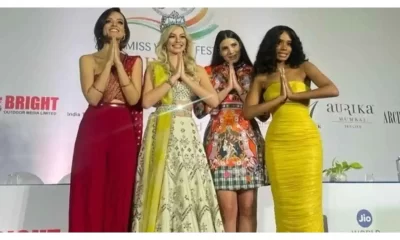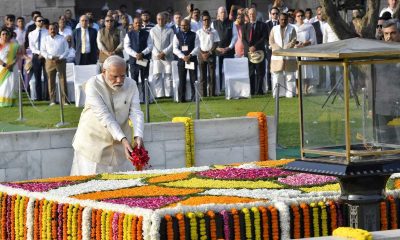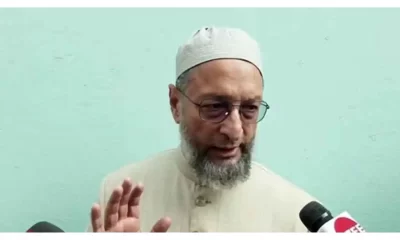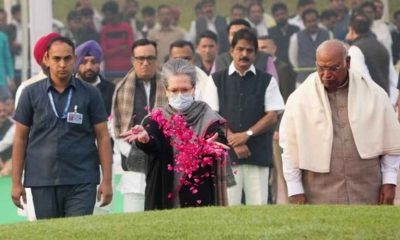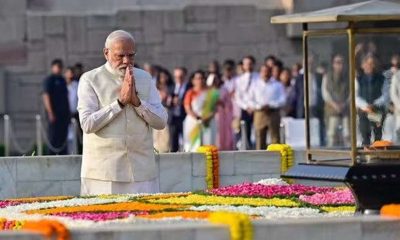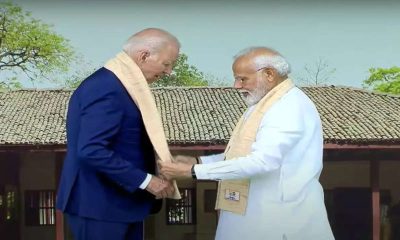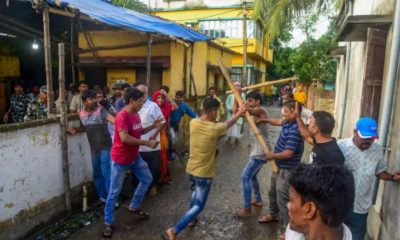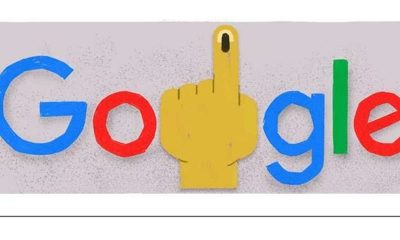India News
Subash Chandra Bose: A look at Netaji’s thoughts on Hindu-Muslim amity
Bose’s sensitivity towards Muslims came from his birth and childhood in a predominantly Muslim locality in Cuttack, Odisha, and his later move to Bengal where more than half the population was Muslim. His elder brother Sarat Chandra Bose had worked closely with the Muslim leaders of Bengal.
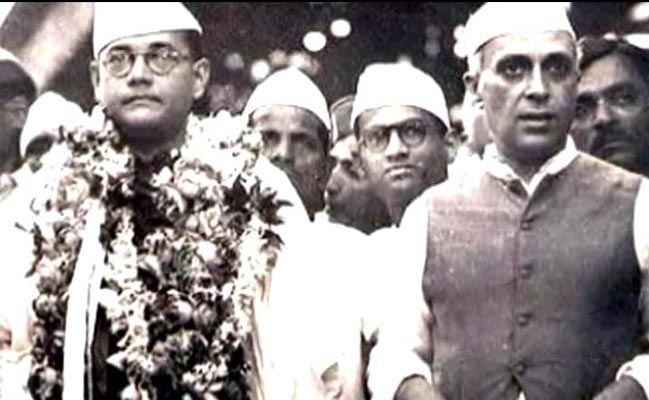
As a liberal follower of the Ramakrishna-Vivekananda movement, Subhas Chandra Bose had believed in religious harmony and considered Indian Muslims as an integral part of this land.
According to him, the first golden moment was the Gupta era and the second was created by the Indian Mughals who did not accept any other religion and made India their home by sharing the common social life of the people – their joys and their sorrows. Through this mutual co-operation, a new art and a new culture was evolved in India.
Netaji rightly uses the framework of synthesis to describe Hindu-Muslim relations in the pre-British era. In his book The Indian Struggle, Bose wrote about the policies of the Muslim rulers by mentioning that the daily life of the people was left untouched and the rulers did not interfere with local self-government based on the old system of village communities.
Bose’s comprehensive treason by selecting a Hindu (Prem Kumar Sahgal), a Muslim (Shah Nawaz Khan) and a Sikh (Gurbaksh Singh Dhillon) from Indian National Army (INA) prisoners to be tried for waging war against the King Emperor.
Mahatma Gandhi praised the communal amity characterised by the INA and Azad Hind government. Bose cooperated with the Muslim League in Calcutta Corporation, and proposed coalition governments for Bengal, Punjab and Sind.
Bose had inherited the renaissance-inspired liberal stream of socio-cultural thoughts as he emerged as a strong critic of communal and sectarian politics. In the late 1930s, he had banned for Congress to simultaneously be members of communal organisations such as the Hindu Mahasabha and the Muslim League, which was a practice among some leaders during the 1910s and the 1920s.
Contrarily, Bose could have competed with Muhammad Ali Jinnah for the loyalty of the Muslim elite, thus making a fundamental difference to the outcome of the 1946 provincial elections in which the League bagged most of the Muslim seats.
By 1937, 97% of Congress members were Hindu while the INA, led by Bose, was composed of officers and men of the British Indian Army, which was 35-40% Muslim.
Bose’s sensitivity towards Muslims came from his birth and childhood in a predominantly Muslim locality in Cuttack, Odisha, and his later move to Bengal where more than half the population was Muslim. His elder brother Sarat Chandra Bose had worked closely with the Muslim leaders of Bengal and was trusted by them.
Even assuming India was divided, Bose as the nationalist par excellence but secular to the core would have been able to outflank Hindu nationalists, including fellow Bengali Syama Prasad Mukherjee, the founder of the Jan Sangh. Nehru’s commitment to a secular India was second to none but his secularism was both liberal and effete.
Read Also: Subhash Chandra Bose: Netaji’s iconic quotes
Bose’s secularism tinged with hypernationalism based on the INA’s motto Ittehad, Itemad, Qurbani (Unity, Confidence, and Sacrifice) would have been far more muscular and could have prevented Hindu chauvinism from gaining traction.
However, today’s India looks very different in that case.
2024 Lok Sabha Elections
Kamal Haasan, Rajinikanth, Vijay Sethupathi, Dhanush vote in Chennai
Superstar Rajinikanth was accompanied by his publicist and his team at the polling both. He greeted everyone and flashed his inked finger for the media.
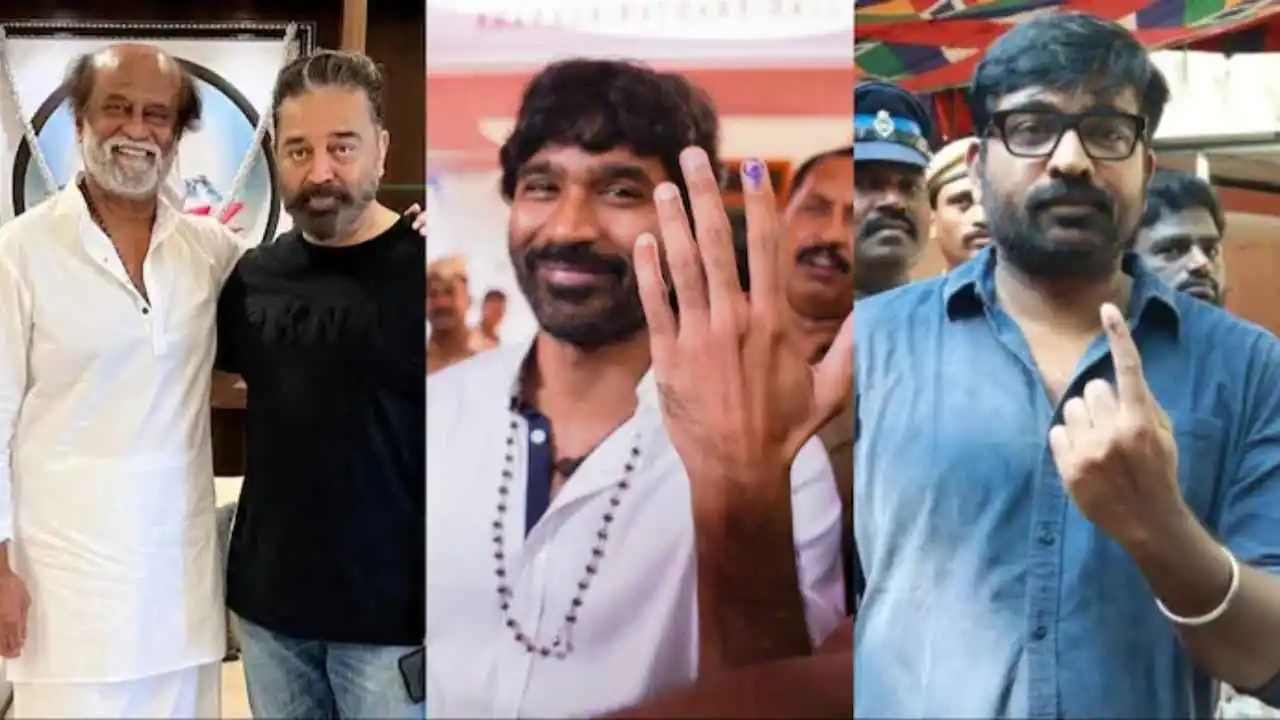
Superstar Rajinikanth and Kamal Haasan cast their votes at their respective polling booths in Chennai on Friday. Actor Dhanush cast his vote at the St Francis Xavier School, TTK Road. Vijay Sethupathi exercised his duty at the Chennai High School in Kilpauk.
Voting for the Lok Sabha Elections 2024 started on Friday. The people of Tamil Nadu will go for voting in the first phase of the elections today. Rajinikanth was accompanied by his publicist and his team at the polling both. He greeted everyone and flashed his inked finger for the media.
A video shows superstar Rajinikanth arriving at his booth and exercising his duty is circulating on social media. He was mobbed by fans while exiting the polling booth. Actor Kamal Haasan, and Makkal Needhi Maiam president, arrived at his election booth to cast his vote. Actor Dhanush cast his vote at the St Francis Xavier School in TTK Road at around 8 am. Vijay Sethupathi cast his vote at the Chennai High School in Kilpauk.
According to reports Ajith Kumar was one of the first actors to cast his vote in Chennai. Social media user Ramesh Bala took to X and shared a video of the actor at the polling station. The actor was seen voting in Thiruvanmiyur early on Friday. Ajith, Rajinikanth and Sivakarthikeyan spoke to the press after voting and urged people to come out and exercise their duty.
Superstar Rajinikanth will be seen next in director TJ Gnanavel’s Vettaiyan. The film features an ensemble cast including Rana Daggubati, Fahadh Faasil, Amitabh Bachchan, Manju Warrier, and Dushara Vijayan, Ritika Singh in pivotal roles. Upcoming projects of Dhanush include Raayan, Kubera and Nilavukku En Mel Ennadi Kobam. Ajith was last seen in the 2023 film Thunivu. He is currently shooting for Vidaa Muyarchi, which is helmed by Magizh Thirumeni and also stars Trisha, Arjun Sarja, Regina Cassandra and Arav in important roles.
2024 Lok Sabha Elections
Lok Sabha elections 2024: Google Doodle marks the start of polls with index finger voting symbol
Google released a doodle today, to mark the begining of Lok Sabha Elections 2024 in India.
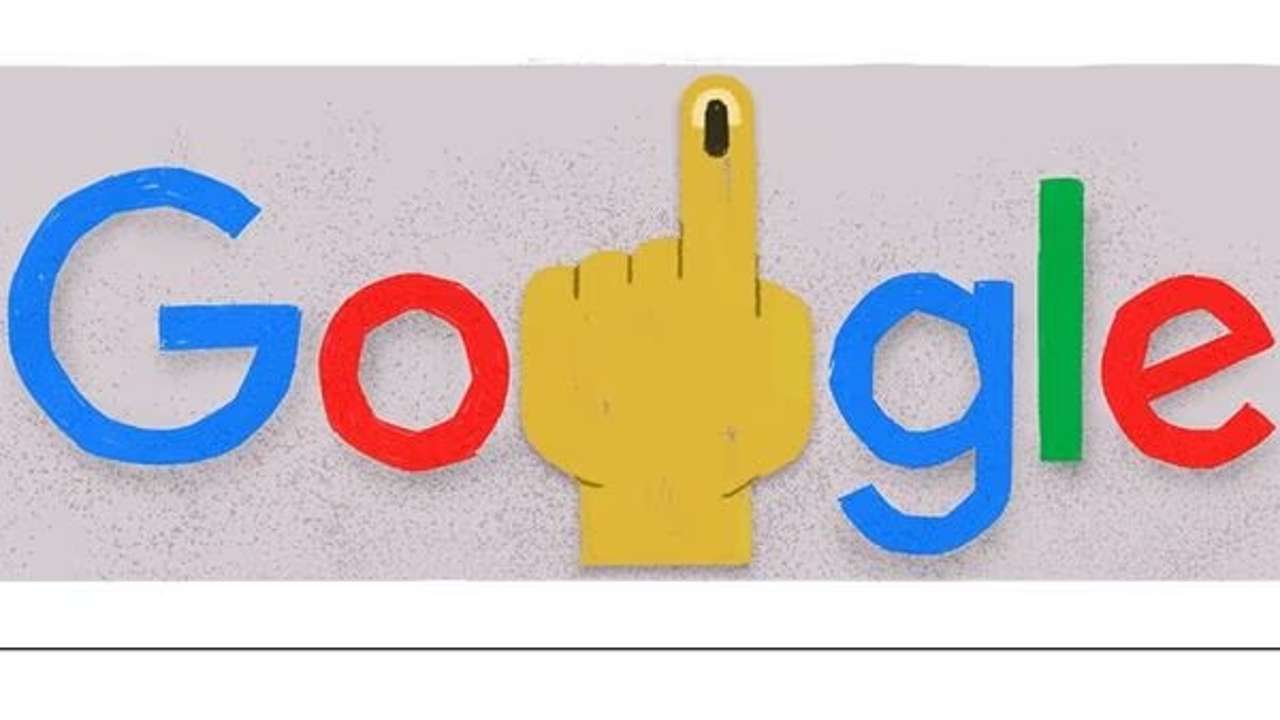
Google unveiled a doodle today, with an inked index finger to commemorate the start of the voting for Indian Lok Sabha elections 2024. This symbolic image represents the country’s ongoing voting process as the general election’s first phase gets under way.
The nationwide availability of this doodle will encourage voters in different states to visit polling booths to cast their votes.
Google Doodles are quick, temporary updates to the Google logo that reflect various national and international topics, such as holidays, significant occasions, and influential people who have had a significant impact on society.
Users can engage in a range of engaging experiences with these Doodles because they are presented in a variety of formats, including photos, animations, slideshows, videos, and interactive games.
Meanwhile, the BJP-led NDA and the INDIA alliance are expected to engage in a fierce contest in this year. 102 constituencies are being covered by elections being held in 17 states and 4 Union Territories (UTs) during 1st phase of election. Over 16.63 crore eligible voters will have 1.87 lakh polling places set up for the first phase of voting. There are 8.4 crore men, 8.23 crore women, and 11,371 voters of a third gender among the eligible voters.
A total of 1625 candidates from various parties will contest in the first phase of elections. Nitin Gadkari, K Annamalai, Jitin Prasada, Jitan Ram Manjhi, Nakul Nath, Gaurav Gogoi, Imran Masood, Karti Chidambaram, Tamilisai Soundararajan, and Dayanidhi Maran are among the important candidates whose fates would be decided today.
The Election Commission of India (ECI) has announced that polling will take place from 7:00 am to 6:00 pm. The results of the voting will pe announced on June 4, as per ECI.
Today, April 19, a number of states, including the Andaman and Nicobar Islands, Sikkim, Tamil Nadu, Puducherry, Uttarakhand, Meghalaya, Mizoram, Nagaland, and portions of Maharashtra, Madhya Pradesh, Uttar Pradesh, Jammu and Kashmir, Tripura, Rajasthan, Chhattisgarh, Manipur, Assam, and Bihar, will hold their first phase of elections.
Voting in Phase 2 is slated to take place on April 26. Phase 3 will take place on May 7, Phase 4 on May 13, Phase 5 on May 20, Phase 6 on May 25, and Phase 7 on June 1.
2024 Lok Sabha Elections
Prime Minister Narendra Modi urges citizens to vote in record numbers as voting for first phase of Lok Sabha elections begins on 102 seats across India
Union Home Minister Amit Shah also urged citizens to vote in large numbers and added that it is not only meant to determine the fate of a Lok Sabha or a candidate but also for shaping a bright future for the country.
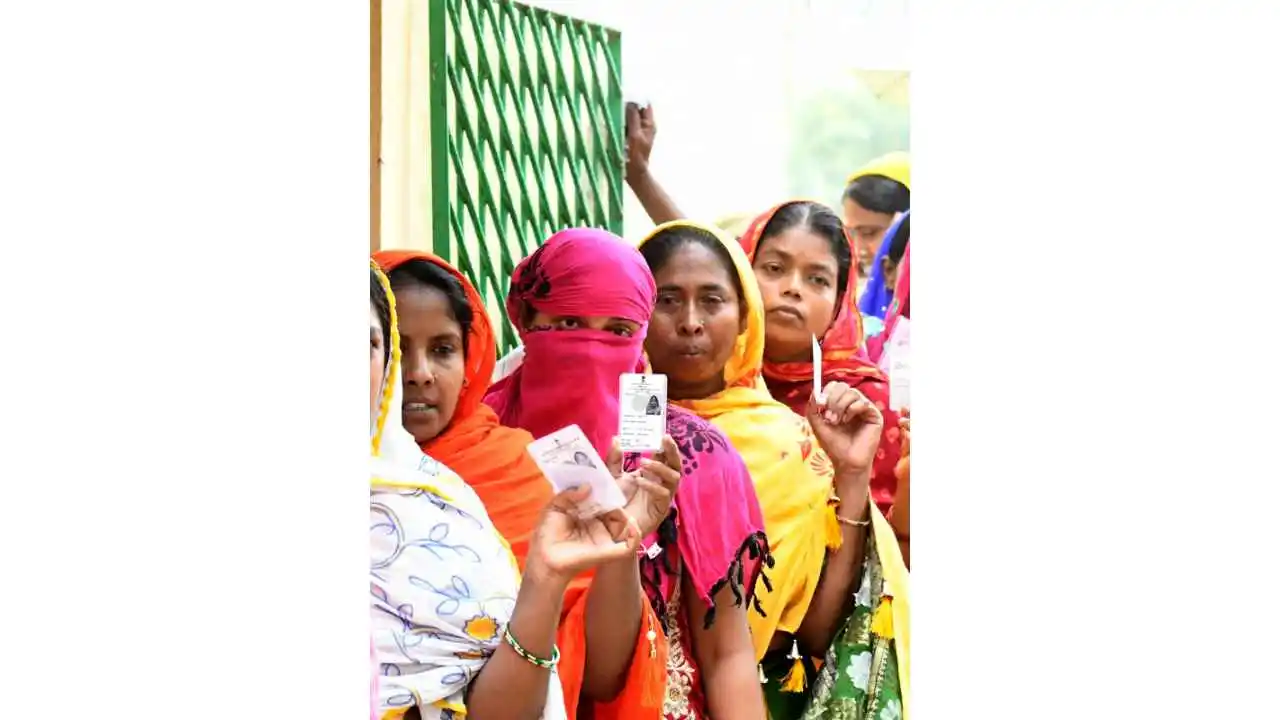
Voting for the first phase of Lok Sabha elections is taking place on 102 seats spread all over India. Prime Minister Narendra Modi took to X and urged citizens to vote in record numbers. He said he particularly called upon the young and first time voters to vote in large numbers. He added that every vote counts and every voice matters.
Congress leader P Chidambaram and RSS supremo Mohan Bhagwat cast their votes in Chennai and Nagpur, respectively. Chidambaram was confident that INDIA bloc will sweep all 39 seats in Tamil Nadu. Union Home Minister Amit Shah also urged citizens to vote in large numbers and added that it is not only meant to determine the fate of a Lok Sabha or a candidate but also for shaping a bright future for the country.
He appealed to all the voters who are voting in this phase to vote in large numbers because every vote of theirs has the power to create a secure, developed, and self-reliant India. He appealed to the people to choose a strong and decisive leadership that has shown the determination to free the country from corruption, nepotism, and appeasement while fulfilling its promises.
In the first phase, elections are being held on all seats in Uttarakhand (5), Tamil Nadu (39), Meghalaya (2), Arunachal Pradesh (2), Mizoram (1), Puducherry (1), Nagaland (1), Andaman and Nicobar Islands (1) and Lakshadweep (1), Sikkim (1). Besides, there is voting in 8 seats in Uttar Pradesh, and Maharashtra, 6 seats in Madhya Pradesh, 12 seats in Rajasthan, 4 in Bihar, 2 in Manipur, 3 in West Bengal, and 1 seat each in Jammu and Kashmir, Tripura, and Chhattisgarh. Assembly elections are also taking place on 60 seats in Arunachal Pradesh and 32 seats in Sikkim.
-
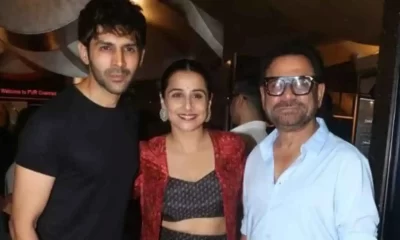
 Entertainment21 hours ago
Entertainment21 hours agoBollywood stars Vidya Balan, Kartik Aaryan, Pratik Gandhi, Ileana D’Cruz, Mouni Roy, Radhika Madan, Mrunal Thakur attend Do Aur Do Pyaar premiere
-
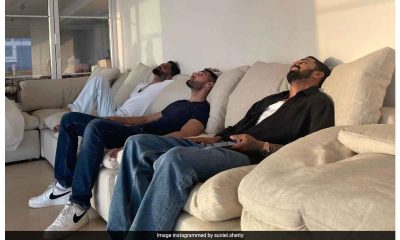
 Cricket news19 hours ago
Cricket news19 hours agoHappy Birthday KL Rahul: Suniel Shetty wishes son-in-law KL Rahul on his 32nd birthday
-
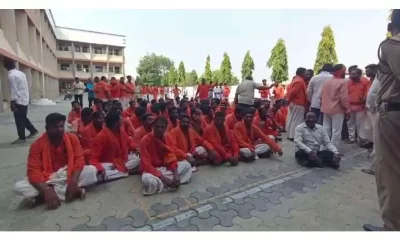
 India News22 hours ago
India News22 hours agoReligious outfit vandalises The Blessed Mother Teresa High School in Telangana after teachers object to students wearing Hanuman Deeksha dress
-
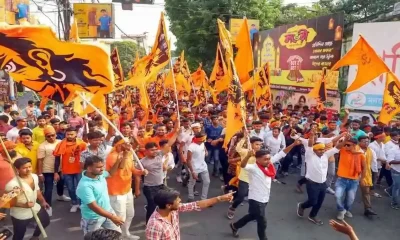
 India News24 hours ago
India News24 hours agoClashes erupt during Ram Navami procession in West Bengal’s Murshidabad district
-
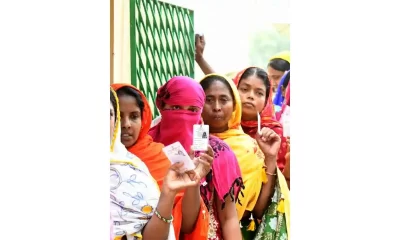
 2024 Lok Sabha Elections2 hours ago
2024 Lok Sabha Elections2 hours agoPrime Minister Narendra Modi urges citizens to vote in record numbers as voting for first phase of Lok Sabha elections begins on 102 seats across India
-
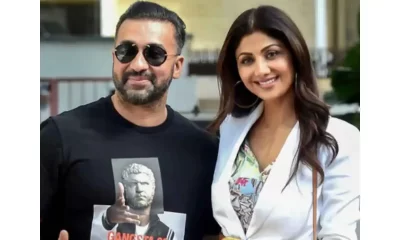
 India News18 hours ago
India News18 hours agoEnforcement Directorate seizes Shilpa Shetty’s husband Raj Kundra’s properties worth Rs 97 crore
-
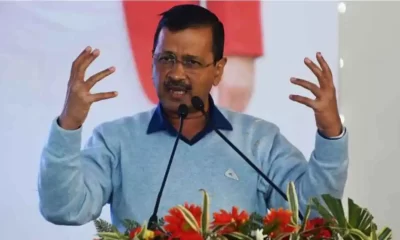
 India News17 hours ago
India News17 hours agoEnforcement Directorate says Arvind Kejriwal is deliberately eating mangoes, sweets, taking sugar with tea to increase his blood sugar level and create ground for bail
-
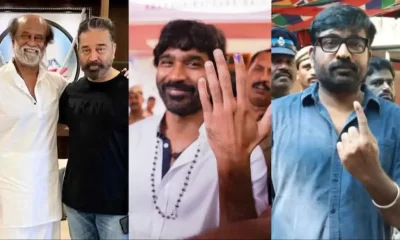
 2024 Lok Sabha Elections24 mins ago
2024 Lok Sabha Elections24 mins agoKamal Haasan, Rajinikanth, Vijay Sethupathi, Dhanush vote in Chennai

